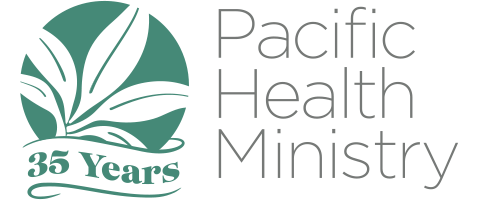To understand the inherent nature of medical ethics, one must first explore its functionality. Designed to prioritize a patient’s rights, it defines a standard one must follow to ensure the continued centrality of a patient concerning their care. In this way, one then understands that ethical guidelines require a great level of objectivity, introspection, and empathy as the desires and wishes of the individual remain paramount.
The question may remain as to the role ethics serves in the religious sector. The answer is quite simple. The qualities previously described intersect and deeply embed themselves into the very fabric of chaplaincy. As a result, the strong connections between these two worlds lay themselves bare upon a deep and meaningful exploration of both spheres.
In speaking to an audience that remains profoundly knowledgeable about spiritual care, the hope becomes that in understanding medical ethics as a whole, one is inspired to explore the subject matter further. Therefore, this formal, albeit brief introduction is perhaps most appropriately begun with the four principles of ethical decision-making: autonomy (the right of the patient to make decisions on their own accord), beneficence (responsibility to do good), nonmaleficence (the commitment to do no harm), and justice (fairness). As Chaplain Thomas Hong explains, “in our field of work, we genuinely embody these principles. As chaplains, the focus becomes humanizing the patient and providing the best care.”
Imagine you are charged with aiding 57-year-old Tom, who is a widower. He has recently experienced a dramatic weight loss, a total of 22 pounds, unattributed to a decrease in food intake or an increase in an exercise regimen. As a result, he undergoes diagnostic testing. His evaluation ultimately reveals that he suffers from stage 4 pancreatic cancer, and his prognosis for five-year survivorship is grim. Despite these odds, Tom is offered an array of medical treatments. While these efforts would not prove to be life-saving, they could extend his life expectancy.
Tom’s children Rita and Junior are adamant about their father’s ongoing care, and urge him to continue the good fight. However, Tom’s own beliefs about his condition leave him skeptical about the practicality of doing so. At this point, he decides to seek out the counsel of one of PHM’s chaplains serving at Queen’s, who happens to have ethical training. Describing himself as “spiritual as opposed to deeply religious,” Tom expresses acceptance of his current state and embraces the idea of reuniting with his wife in the afterlife. He asks the chaplain to join him in discussing his wishes with his family, which the latter enthusiastically agrees to. A situation like this is where one’s medical ethics foundation comes in handy.
What does one do in a situation like this? Despite Tom’s adamancy in defining his treatment, his family is persistent in prolonging the life of their loved one. In this case, there are two opposing agendas. As an ethical consultant, one is trained to assess and deal with conflicts just like this. Medical ethics education provides the tools and know-how to practice fair-mindedness. As a whole, one is encouraged to offer recommendations to ensure the patient’s rights and liberties aren’t infringed upon.
With the natural ability to listen and empathize, chaplains are perhaps in the greatest position to fulfill these roles. In conjunction with the skills developed as a religious leader, an ethics background allows one to quickly identify what must be prioritized in this instance–Tom’s wishes. In speaking with the family, it would be helpful to encourage open and honest dialogue while compassionately championing Tom’s voice. It is never easy to grapple with losing a loved one, but failing to respect and uphold the patient’s wishes is a far greater tragedy. The goal may not always be in complete agreement but instead increased understanding. While Rita and Junior never fully accept their father’s decision, they ultimately choose to respect the conclusion he has come to as his life is most drastically impacted in this process.
In taking the initial step of being an active and willing student of medical ethics, one becomes a more considerate and well-advised member of a larger team. While the foundations of medical ethics are sprouted throughout the DNA of religious servitude, there is a plethora of insight the rigorous educational pathway to becoming an ethics consultant provides. A medical ethics committee, distinguished by interprofessional collaboration, regularly extends a welcome to residents and staff alike. Allowing the former to sit in on monthly committee meetings encourages dialogue regarding the role ethicality plays in the everyday decision-making process of all who serve as the heartbeat of hospital functions. As Chaplain Al Miles notes, “ethical decision-making is about leaving egos at the door” and working together.
